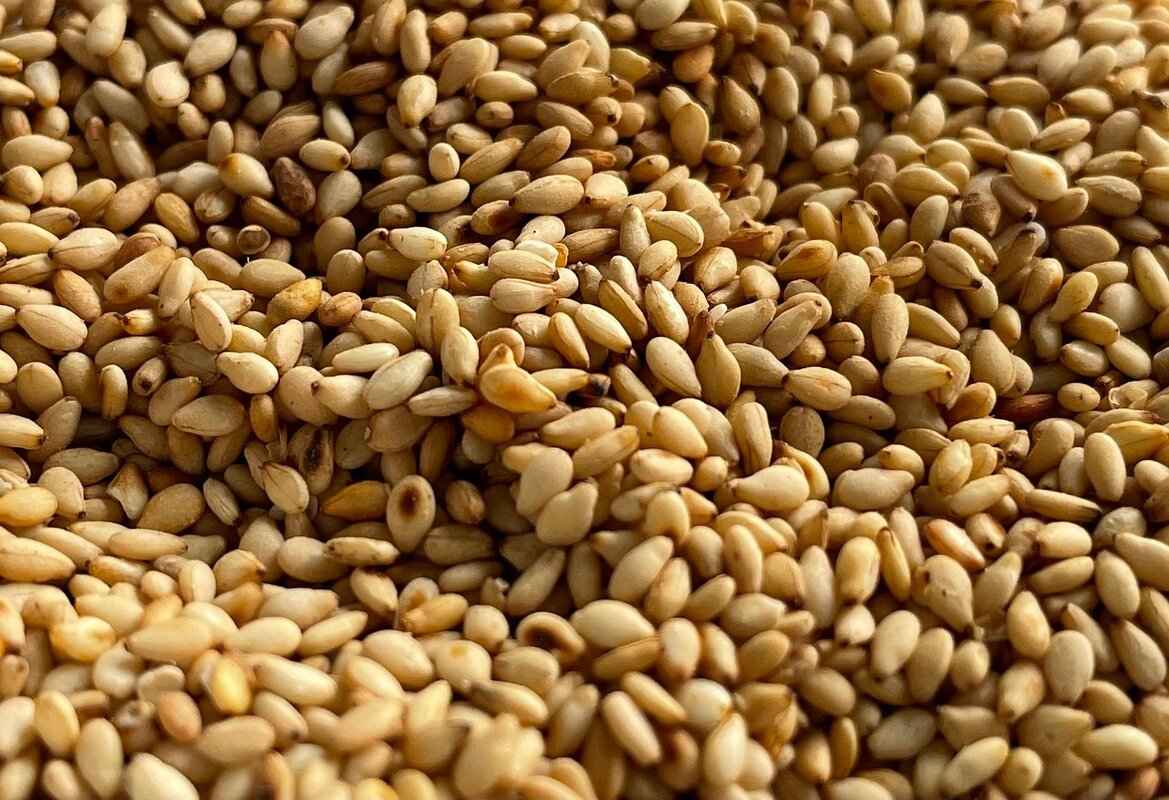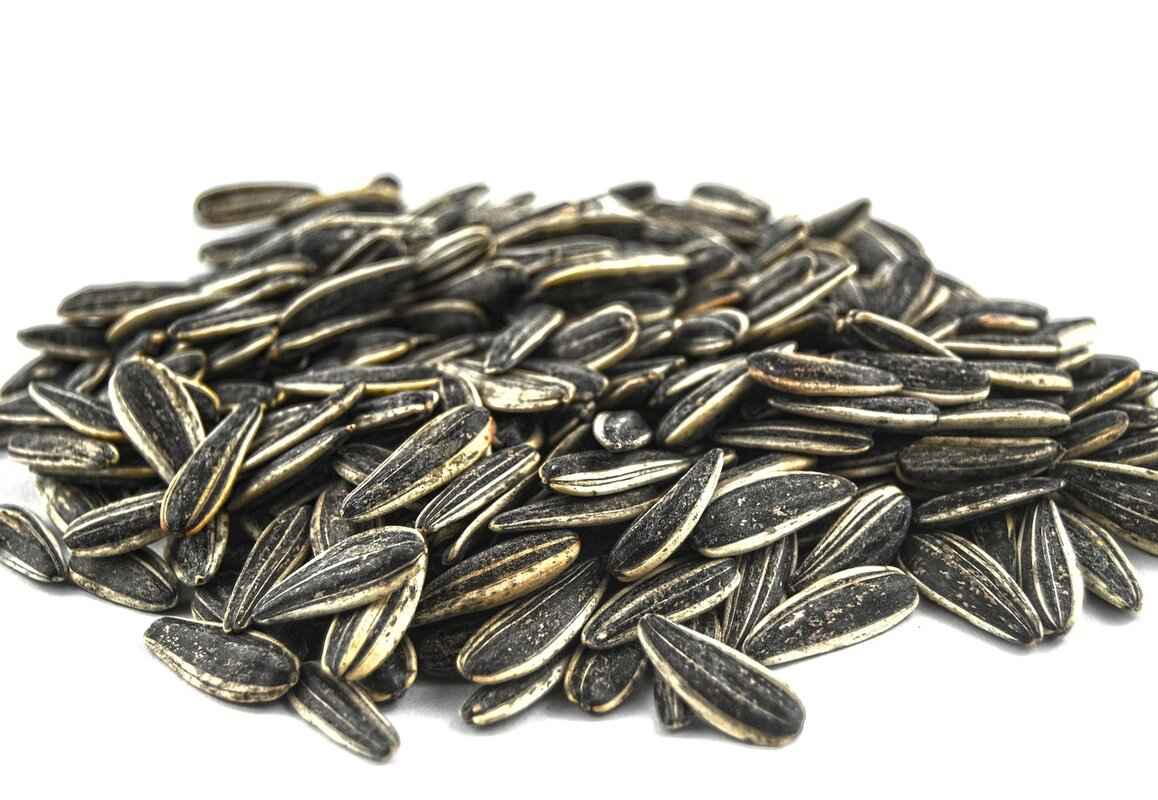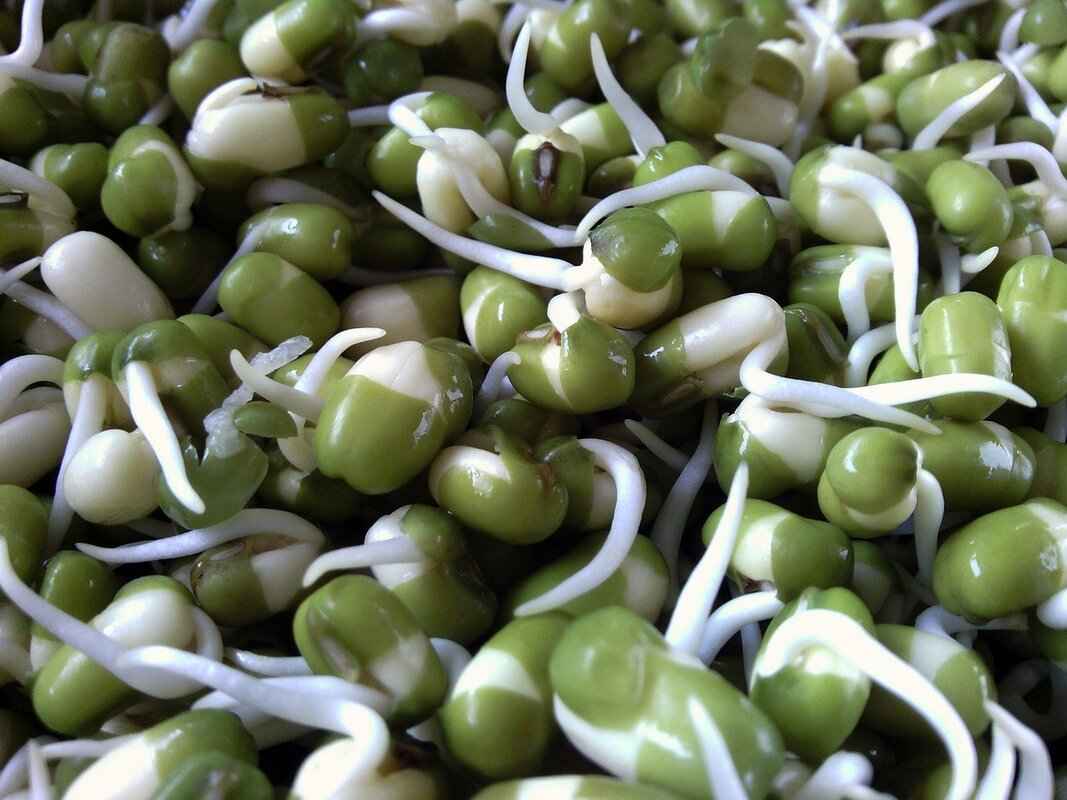Chia seeds have emerged as a popular superfood, celebrated for their remarkable nutritional profile. These tiny seeds, derived from the Salvia hispanica plant, are not only versatile but also packed with essential nutrients that contribute to overall health. This article delves into the health benefits, key nutrients, and practical ways to incorporate chia seeds into a balanced diet.
Chia seeds are a powerhouse of nutrition, containing a variety of essential components:
- Omega-3 Fatty Acids: Rich in alpha-linolenic acid (ALA), these healthy fats are crucial for heart health and cognitive function.
- Protein: Offering about 4 grams of protein per 28 grams, chia seeds are an excellent source of plant-based protein.
- Fiber: With approximately 11 grams of fiber per serving, they aid in digestion and promote a feeling of fullness.
- Vitamins and Minerals: Chia seeds are abundant in calcium, magnesium, phosphorus, and several B vitamins, all essential for maintaining bone health and energy levels.
The high fiber content in chia seeds plays a significant role in supporting digestive health. The seeds contain both soluble and insoluble fiber:
- Soluble Fiber: Helps regulate blood sugar levels and lowers cholesterol.
- Insoluble Fiber: Aids in digestion and prevents constipation by adding bulk to stool.
Regular consumption of chia seeds can lead to improved bowel regularity and overall gut health.
Due to their high fiber and protein content, chia seeds can promote feelings of fullness, which may assist in weight management. By incorporating chia seeds into meals, individuals may find it easier to control their calorie intake, making them an effective addition to a weight loss strategy.
Chia seeds are incredibly versatile and can be added to a variety of dishes:
- Smoothies: Blend them into your favorite smoothie for an extra nutrient boost.
- Yogurt: Stir chia seeds into yogurt for added texture and nutrition.
- Baked Goods: Use chia seeds as a healthy addition to muffins, bread, and pancakes.
- Chia Pudding: Soak chia seeds in almond milk or coconut milk overnight for a delicious pudding.
When compared to other superfoods, chia seeds stand out due to their unique nutrient profile. While many superfoods offer specific benefits, chia seeds provide a comprehensive range of nutrients in one small package, making them a valuable addition to a healthy diet.
Beyond traditional uses, chia seeds can be creatively incorporated into various recipes:
- As an Egg Substitute: Mix chia seeds with water to create a gel-like substance that can replace eggs in vegan baking.
- In Salads: Sprinkle chia seeds on salads for added crunch and nutrition.
- In Energy Bars: Include chia seeds in homemade energy bars for a nutritious snack.
With their mild flavor and easy incorporation into meals, chia seeds can enhance both nutrition and culinary creativity.

What Are Chia Seeds and Why Are They Popular?
Chia seeds have become a prominent fixture in the health food scene, celebrated for their remarkable nutrient density and versatility. These tiny seeds, which originate from the Salvia hispanica plant, are available in both black and white varieties. Their rise to fame as a superfood can be attributed to their impressive health benefits and ease of incorporation into various diets.
Chia seeds are often referred to as a superfood due to their unique nutritional profile. They are a rich source of essential nutrients, including:
- Omega-3 Fatty Acids: These beneficial fats are crucial for heart health and brain function.
- Dietary Fiber: With about 11 grams of fiber per 28-gram serving, chia seeds promote digestive health and regularity.
- Protein: They provide a plant-based protein source, containing approximately 4 grams per serving, making them ideal for vegetarians and vegans.
- Vitamins and Minerals: Chia seeds are packed with calcium, magnesium, and phosphorus, which are essential for maintaining strong bones and overall health.
The versatility of chia seeds is one of the key reasons for their popularity. They can be easily incorporated into a variety of dishes, such as:
- Smoothies: Add chia seeds to your morning smoothie for an extra nutrient boost.
- Puddings: Soak chia seeds in almond milk or coconut milk overnight to create a delicious and healthy pudding.
- Baked Goods: Use chia seeds as an egg substitute in vegan baking or sprinkle them on top of muffins and bread.
- Salads and Bowls: Toss chia seeds into salads or grain bowls for added crunch and nutrition.
The health benefits of chia seeds are numerous. Their high fiber content aids in digestion, promoting a healthy gut and regular bowel movements. Additionally, the combination of fiber and protein can help you feel full longer, potentially assisting with weight management by reducing overall calorie intake.
Yes, chia seeds are beneficial for heart health. The omega-3 fatty acids found in chia seeds, particularly alpha-linolenic acid (ALA), are known to support cardiovascular health by reducing inflammation and lowering cholesterol levels. Regular consumption of chia seeds can contribute to a healthier heart.
When compared to other superfoods, chia seeds stand out due to their unique combination of nutrients and their ability to absorb liquid, creating a gel-like consistency. This property not only enhances their texture in recipes but also contributes to their satiating effect.
Chia seeds can be used in a multitude of creative ways, making them a fun ingredient to experiment with in the kitchen. Here are a few ideas:
- Chia Fresca: Mix chia seeds with water and a splash of lemon or lime juice for a refreshing drink.
- Energy Bars: Incorporate chia seeds into homemade energy bars for a nutritious snack on the go.
- Soups and Stews: Add chia seeds to soups and stews as a thickening agent and to boost nutrition.
In summary, chia seeds are not just a trendy health food; they are a powerhouse of nutrition that can easily fit into a balanced diet. Their health benefits, versatility, and ease of use make them a valuable addition to meals and snacks alike.

What Nutrients Are Found in Chia Seeds?
Chia seeds have emerged as a popular superfood, celebrated for their impressive nutritional profile. These tiny seeds, derived from the Salvia hispanica plant, are not only versatile but also rich in essential nutrients that contribute to overall health and well-being. In this section, we will delve into the specific nutrients found in chia seeds and their associated health benefits.
Chia seeds are a powerhouse of nutrition, containing a variety of essential nutrients that support various bodily functions. Here’s a breakdown of the key nutrients:
- Omega-3 Fatty Acids: Chia seeds are one of the richest plant sources of omega-3 fatty acids, particularly alpha-linolenic acid (ALA). These healthy fats are crucial for maintaining heart health, reducing inflammation, and supporting brain function.
- Dietary Fiber: With approximately 11 grams of fiber per 28 grams, chia seeds are an excellent source of both soluble and insoluble fiber. This high fiber content aids in digestion, promotes satiety, and helps regulate blood sugar levels.
- Protein: Chia seeds provide about 4 grams of protein per serving, making them a valuable addition to vegetarian and vegan diets. Protein is essential for tissue repair, muscle building, and overall body maintenance.
- Vitamins and Minerals: Chia seeds are rich in several vitamins and minerals, including calcium, magnesium, phosphorus, and manganese. These nutrients play vital roles in bone health, energy production, and metabolic processes.
The omega-3 fatty acids found in chia seeds contribute significantly to cardiovascular health. They help lower bad cholesterol levels, reduce blood pressure, and minimize the risk of heart disease. Additionally, omega-3s are known to support cognitive function and may help prevent age-related cognitive decline.
The fiber content in chia seeds is beneficial for maintaining a healthy digestive system. Soluble fiber absorbs water and forms a gel-like substance in the gut, which can help regulate bowel movements and prevent constipation. Insoluble fiber adds bulk to the stool, promoting regularity and overall gut health.
The combination of protein and fiber in chia seeds can promote feelings of fullness, which may assist in weight management. When consumed, chia seeds expand in the stomach, leading to increased satiety and potentially reducing overall calorie intake.
The vitamins and minerals present in chia seeds support various bodily functions. For instance, calcium is essential for bone health, while magnesium plays a role in muscle and nerve function. Phosphorus is crucial for energy production and the formation of bones and teeth.
When compared to other superfoods, chia seeds stand out due to their unique combination of nutrients. Unlike many other seeds and nuts, chia seeds are low in calories but high in essential nutrients, making them a great addition to a balanced diet. Their versatility allows them to be easily incorporated into various dishes, enhancing both nutritional value and flavor.
In summary, chia seeds are a nutrient-dense food that provides numerous health benefits. With their rich content of omega-3 fatty acids, fiber, protein, and essential vitamins and minerals, they can play a significant role in supporting overall health and well-being. Incorporating chia seeds into your diet can be a simple yet effective way to boost your nutrient intake and promote a healthy lifestyle.
How Much Protein Do Chia Seeds Contain?
Chia seeds have emerged as a popular superfood, particularly among those seeking plant-based protein sources. These tiny seeds are not only packed with nutrients but also offer a plethora of health benefits that make them a valuable addition to any diet. In this section, we will delve into the protein content of chia seeds and explore their significance for overall health.
Chia seeds are an excellent plant-based protein source, providing approximately 4 grams of protein per 28 grams serving. This remarkable protein content makes them an ideal choice for individuals following vegetarian and vegan diets. Unlike many plant-based protein sources, chia seeds contain all nine essential amino acids, making them a complete protein.
Protein plays a crucial role in our bodies. It is essential for building and repairing tissues, producing enzymes and hormones, and supporting overall health. Adequate protein intake is vital for muscle growth, immune function, and maintaining a balanced metabolism. Including protein-rich foods like chia seeds in your diet can significantly enhance your nutritional intake.
Incorporating chia seeds into your meals is both easy and versatile. Here are some creative ways to add them to your diet:
- Smoothies: Blend chia seeds into your favorite smoothies for a protein boost.
- Yogurt: Stir chia seeds into yogurt for added texture and nutrition.
- Baked Goods: Add chia seeds to muffins, bread, or pancakes for an extra protein kick.
- Puddings: Make chia seed pudding by soaking them in milk or a milk alternative, creating a delicious and nutritious dessert.
Unlike many animal-based protein sources, chia seeds are rich in omega-3 fatty acids, fiber, and various vitamins and minerals. This unique combination not only supports muscle repair and growth but also promotes heart health and digestive wellness. Furthermore, chia seeds are gluten-free and easy to digest, making them suitable for a wide range of dietary preferences.
The combination of protein and fiber in chia seeds contributes to feelings of fullness and satiety. This can be beneficial for weight management, as it may help reduce overall calorie intake. Including chia seeds in your meals can be a strategic approach to maintaining a healthy weight while ensuring adequate protein consumption.
In summary, chia seeds are a powerhouse of nutrition, offering a significant amount of protein along with numerous health benefits. Their versatility in recipes and ability to blend seamlessly into various dishes make them an excellent choice for anyone looking to enhance their protein intake. Whether you are a vegetarian, vegan, or simply seeking to improve your diet, chia seeds are a valuable addition to your pantry.
Why Is Protein Important for Your Body?
Protein is an essential macronutrient that plays a crucial role in maintaining overall health and well-being. It is composed of amino acids, which are the building blocks necessary for various bodily functions. Understanding the importance of protein can help individuals make informed dietary choices that support their health goals.
Protein is vital for building and repairing tissues. Every cell in the body contains protein, and it is particularly important for muscles, skin, and organs. When you engage in physical activities or experience injuries, your body requires protein to heal and regenerate tissues. This is especially critical for athletes and those involved in regular exercise, as their muscles undergo constant wear and tear.
In addition to tissue repair, protein is also essential for the production of enzymes and hormones. Enzymes facilitate biochemical reactions in the body, such as digestion and metabolism, while hormones regulate various physiological processes, including growth and mood. For example, insulin, a hormone that helps control blood sugar levels, is a protein. Without adequate protein intake, these vital functions may be compromised.
Moreover, protein plays a significant role in supporting a healthy immune system. Antibodies, which help fight off infections and diseases, are made of protein. A diet lacking in sufficient protein can weaken the immune response, making the body more susceptible to illnesses.
Incorporating protein-rich foods into your diet can enhance your overall health. Foods such as chia seeds, lentils, beans, nuts, and lean meats are excellent sources of protein. For instance, chia seeds not only provide protein but are also high in fiber and omega-3 fatty acids, making them a nutrient-dense addition to any meal.
Another important aspect of protein is its role in weight management. High-protein foods can promote feelings of fullness and satiety, which may help reduce overall calorie intake. This can be particularly beneficial for those looking to manage their weight or improve body composition.
It is essential to consume a variety of protein sources to ensure you receive all the necessary amino acids. Animal-based proteins, such as poultry, fish, and dairy, typically contain all essential amino acids, while many plant-based proteins may lack one or more. However, by combining different plant sources, such as beans and rice, you can create a complete protein profile.
In conclusion, protein is a fundamental component of a balanced diet, contributing to tissue repair, enzyme and hormone production, immune function, and weight management. Including protein-rich foods like chia seeds can significantly enhance your dietary intake, supporting your overall health and wellness.
How Can You Incorporate Chia Seeds for Protein?
Chia seeds are a nutritional powerhouse that can effortlessly enhance your meals with a protein boost. These tiny seeds, rich in essential nutrients, can be incorporated into your diet in a variety of delicious and innovative ways. Below are some practical methods to seamlessly integrate chia seeds into your daily meals.
One of the easiest ways to incorporate chia seeds into your diet is by adding them to smoothies. Simply blend a tablespoon of chia seeds into your favorite smoothie recipe. They will not only enhance the nutritional value but also contribute to a creamy texture. The seeds can absorb liquid, making your smoothie more filling and satisfying.
Another simple method is to stir chia seeds into yogurt. This addition provides a crunchy texture and a protein boost. You can also mix in fruits, honey, or granola to create a delicious breakfast or snack option. The seeds will swell and create a delightful consistency, making your yogurt even more enjoyable.
Chia seeds can be incorporated into baked goods such as muffins, bread, or pancakes. They can replace eggs in vegan recipes, acting as a binding agent. To use them as an egg substitute, mix one tablespoon of chia seeds with three tablespoons of water and let it sit for a few minutes until it forms a gel-like consistency. This not only adds protein but also enhances the nutritional profile of your baked treats.
Chia pudding is a popular and nutritious snack that is simple to prepare. Combine chia seeds with your choice of milk (dairy or plant-based) and let it sit in the refrigerator for a few hours or overnight. The seeds will absorb the liquid, creating a thick and creamy pudding. You can flavor it with vanilla, cocoa, or fruit, making it a versatile dessert option.
For a nutritious crunch, sprinkle chia seeds on top of salads. They add texture and a dose of protein without overpowering the flavors of your dish. This is an excellent way to enhance your salads with healthy fats and fiber, making them more satisfying.
Add chia seeds to your morning oatmeal for an extra boost of nutrition. Mix them in while cooking or sprinkle them on top before serving. Not only will this enrich your meal with protein, but it will also add a delightful texture.
Chia seeds can also be a fantastic topping for smoothie bowls. After blending your smoothie to a thick consistency, top it with chia seeds, fruits, nuts, and seeds. This not only enhances the visual appeal but also adds a satisfying crunch.
By incorporating chia seeds into these various meals, you can enjoy their numerous health benefits while diversifying your diet. Whether you are looking for a protein boost or simply want to enhance the nutritional quality of your meals, chia seeds are a versatile ingredient that can easily fit into your lifestyle.
What About Omega-3 Fatty Acids in Chia Seeds?
Chia seeds have gained recognition as a nutritional powerhouse, offering a plethora of health benefits. Among their many attributes, one of the most significant is their high content of omega-3 fatty acids, particularly alpha-linolenic acid (ALA). These essential fats are crucial for maintaining optimal heart and brain health, making chia seeds an invaluable addition to a balanced diet.
Omega-3 fatty acids, especially ALA, play a vital role in various bodily functions. They are known to:
- Support Heart Health: Omega-3s can help lower blood pressure, reduce triglycerides, and decrease the risk of heart disease.
- Enhance Brain Function: These fatty acids are essential for brain health, contributing to cognitive function and potentially reducing the risk of neurodegenerative diseases.
- Reduce Inflammation: Omega-3s have anti-inflammatory properties, which can aid in managing conditions like arthritis and other inflammatory disorders.
While fatty fish like salmon are often touted as the best sources of omega-3s, chia seeds offer a plant-based alternative that is suitable for vegetarians and vegans. In fact, just one ounce (28 grams) of chia seeds contains approximately 5 grams of ALA, making them one of the richest plant sources available. This is particularly beneficial for those who may not consume fish or fish oil supplements.
Incorporating chia seeds into your diet is simple and versatile. Here are some practical ways to enjoy their omega-3 benefits:
- Add to Smoothies: Blend chia seeds into your morning smoothie for a nutritious boost.
- Mix into Yogurt: Stir chia seeds into yogurt or oatmeal for added texture and nutrition.
- Use in Baking: Substitute chia seeds for eggs in vegan baking or sprinkle them on top of baked goods.
The American Heart Association recommends consuming at least two servings of fatty fish per week, which translates to about 500 milligrams of EPA and DHA (the two other types of omega-3s). For ALA, the recommended daily intake is around 1.1 grams for women and 1.6 grams for men. Just two tablespoons of chia seeds can help you meet these requirements, making them an easy addition to your daily diet.
While omega-3 fatty acids are beneficial, it is essential to consume them in moderation. Excessive intake, particularly from supplements, can lead to blood thinning and increased bleeding risk. However, obtaining omega-3s from whole food sources like chia seeds is generally considered safe and beneficial.
In conclusion, chia seeds stand out as a nutrient-dense food that provides a wealth of omega-3 fatty acids, particularly ALA. Their versatility and health benefits make them an excellent choice for anyone looking to enhance their diet with essential nutrients. By incorporating chia seeds into your meals, you can enjoy not only their unique texture but also the significant health advantages they offer.

How Do Chia Seeds Benefit Digestive Health?
Chia seeds have gained significant attention for their numerous health benefits, particularly in the realm of digestive health. With their impressive fiber content, these tiny seeds play a crucial role in promoting a healthy digestive system. In this section, we will delve deeper into how chia seeds can enhance your digestive health and why incorporating them into your diet is beneficial.
The high fiber content in chia seeds, approximately 11 grams per 28 grams, is a key factor in their ability to support digestive health. Fiber is essential for maintaining regular bowel movements and ensuring proper gut function. When consumed, chia seeds expand in the digestive tract, absorbing water and forming a gel-like substance. This process aids in regulating bowel movements and can help prevent constipation.
Chia seeds contain both soluble and insoluble fiber. Soluble fiber dissolves in water, forming a gel-like consistency that slows digestion and helps regulate blood sugar levels. This type of fiber is beneficial for those looking to manage their blood sugar and cholesterol levels. On the other hand, insoluble fiber adds bulk to the stool and promotes movement through the digestive tract, effectively preventing gastrointestinal issues such as constipation.
In addition to their digestive benefits, chia seeds can also assist in weight management. The combination of fiber and protein in chia seeds promotes a feeling of fullness, which can help reduce overall calorie intake. When included in meals, chia seeds can help curb appetite, making it easier to maintain a healthy weight.
While there are many sources of dietary fiber, chia seeds stand out due to their unique combination of nutrients. For instance, a serving of chia seeds provides more fiber than many fruits and vegetables, making them an excellent choice for those looking to increase their fiber intake without consuming large quantities of food. Additionally, chia seeds are versatile and can be easily incorporated into various dishes, from smoothies to baked goods, enhancing both nutrition and flavor.
- Smoothies: Add a tablespoon of chia seeds to your morning smoothie for an extra fiber boost.
- Puddings: Mix chia seeds with almond milk and let them sit overnight to create a delicious and nutritious pudding.
- Baking: Substitute eggs with chia seeds in vegan baking recipes for added moisture and fiber.
- Salads: Sprinkle chia seeds on salads for a crunchy texture and nutritional enhancement.
While chia seeds are generally safe for most people, it’s important to consume them in moderation. Due to their high fiber content, excessive intake can lead to digestive discomfort, such as bloating or gas. It’s advisable to start with a small amount and gradually increase your intake to allow your digestive system to adjust.
In summary, the high fiber content in chia seeds significantly contributes to digestive health by promoting regular bowel movements and supporting gut function. With their unique combination of soluble and insoluble fiber, chia seeds not only enhance digestion but also aid in weight management. By incorporating chia seeds into your daily diet, you can enjoy a variety of health benefits while adding a nutritious element to your meals.
What Type of Fiber Is Found in Chia Seeds?
Chia seeds are often hailed as a superfood, and one of the key reasons for this reputation is their impressive fiber content. Understanding the types of fiber present in chia seeds and their respective health benefits can help you make informed dietary choices.
Chia seeds contain both soluble and insoluble fiber, each playing a vital role in maintaining overall health. The combination of these fibers contributes significantly to the seeds’ reputation as a powerhouse of nutrition.
Soluble fiber is known for its ability to dissolve in water, forming a gel-like substance in the digestive tract. This characteristic offers several health benefits:
- Regulates Blood Sugar Levels: By slowing down the absorption of sugar, soluble fiber helps maintain stable blood sugar levels. This is particularly beneficial for individuals with diabetes or those looking to manage their weight.
- Supports Heart Health: Soluble fiber can help lower cholesterol levels, reducing the risk of heart disease. It binds to cholesterol in the digestive system, preventing its absorption into the bloodstream.
- Enhances Nutrient Absorption: The gel-like consistency of soluble fiber can aid in the absorption of essential nutrients, ensuring that your body receives maximum benefits from the foods you consume.
In contrast, insoluble fiber does not dissolve in water. It adds bulk to the stool and promotes regular bowel movements. Here are some key benefits:
- Aids Digestion: Insoluble fiber helps food pass through the digestive tract more efficiently, preventing issues such as constipation and promoting overall gut health.
- Supports Weight Management: By adding bulk to your meals, insoluble fiber can increase feelings of fullness, helping to control appetite and reduce overall calorie intake.
- Prevents Digestive Disorders: A diet high in insoluble fiber is associated with a lower risk of developing conditions such as diverticulitis and hemorrhoids.
In a standard serving size of 28 grams (about 2 tablespoons), chia seeds provide approximately 11 grams of fiber. This remarkable amount accounts for more than one-third of the daily recommended fiber intake for adults. Incorporating chia seeds into your diet can help you easily meet your fiber needs.
There are numerous ways to enjoy chia seeds and reap their fiber benefits:
- Chia Puddings: Mix chia seeds with milk or a dairy-free alternative and let them soak overnight to create a delicious pudding.
- Smoothies: Add a tablespoon of chia seeds to your favorite smoothie for an extra fiber boost.
- Salads and Bowls: Sprinkle chia seeds on salads or grain bowls for added texture and nutrition.
In conclusion, the fiber content in chia seeds, comprising both soluble and insoluble types, offers numerous health benefits. From regulating blood sugar levels to aiding digestion, these tiny seeds can make a significant impact on your overall health. By incorporating chia seeds into your meals, you can enhance your fiber intake and support your well-being.
Can Chia Seeds Help with Weight Management?
Chia seeds have emerged as a popular ingredient in health-conscious diets, and for good reason. One of their most notable benefits is their potential role in weight management. The unique combination of fiber and protein found in chia seeds can significantly contribute to feelings of fullness, which may support efforts to control calorie intake.
The high fiber content in chia seeds, approximately 11 grams per 28 grams, plays a crucial role in promoting satiety. When chia seeds are consumed, they absorb water and expand in the stomach, creating a gel-like substance. This expansion can lead to a feeling of fullness, helping to curb hunger and reduce the temptation to snack between meals.
In addition to fiber, chia seeds are also a good source of plant-based protein, providing around 4 grams of protein per serving. Protein is known for its satiating effects, as it takes longer to digest compared to carbohydrates. Including protein-rich foods in your diet can help you feel fuller for longer, potentially leading to a decrease in overall calorie consumption.
Incorporating chia seeds into your meals is simple and versatile. They can be added to smoothies, oatmeal, or yogurt, or even used in baking. This flexibility allows individuals to enjoy the benefits of chia seeds without drastically changing their eating habits. By replacing less healthy ingredients with chia seeds, you can enhance the nutritional profile of your meals while promoting weight management.
Beyond weight management, chia seeds offer numerous health benefits. Their omega-3 fatty acids contribute to heart health, while their antioxidant properties help combat oxidative stress. Additionally, the fiber in chia seeds supports digestive health by promoting regular bowel movements.
While chia seeds are generally safe for most individuals, it is essential to consume them in moderation. Starting with a small amount and gradually increasing your intake can help your digestive system adjust to the increased fiber. Also, be sure to drink plenty of water when consuming chia seeds, as they can absorb significant amounts of liquid.
Nutritionists and health experts often recommend chia seeds as part of a balanced diet. Their ability to promote fullness, combined with their rich nutrient profile, makes them an excellent choice for those looking to manage their weight. However, it is essential to combine chia seeds with a variety of other healthy foods to ensure a well-rounded diet.
In conclusion, the combination of fiber and protein in chia seeds can make them a valuable asset in weight management strategies. By incorporating these tiny seeds into your meals, you can take a step toward achieving your health and wellness goals.

Are There Any Vitamins and Minerals in Chia Seeds?
Chia seeds, often hailed as a superfood, are not only rich in flavor and versatility but also boast an impressive array of vitamins and minerals. These tiny seeds, derived from the Salvia hispanica plant, have become increasingly popular for their numerous health benefits. In this section, we will delve into the essential vitamins and minerals found in chia seeds and their significance for our health.
Chia seeds are a fantastic source of several crucial vitamins that contribute to overall health:
- Vitamin B1 (Thiamine): Essential for energy metabolism and proper nerve function.
- Vitamin B2 (Riboflavin): Plays a vital role in energy production and cellular function.
- Vitamin B3 (Niacin): Important for DNA repair and the production of stress hormones.
- Vitamin B6: Supports brain health and helps regulate mood.
- Folate: Crucial for cell division and the formation of DNA, making it especially important during pregnancy.
Chia seeds are particularly rich in several minerals that are essential for maintaining strong bones:
- Calcium: With approximately 18% of the recommended daily intake in just one ounce, chia seeds are an excellent plant-based source of calcium, vital for bone health and muscle function.
- Magnesium: This mineral plays a key role in over 300 biochemical reactions in the body, including muscle and nerve function, and is essential for maintaining bone density.
- Phosphorus: Important for the formation of bones and teeth, phosphorus also helps the body utilize carbohydrates and fats.
Beyond calcium, magnesium, and phosphorus, chia seeds also contain:
- Zinc: Vital for immune function and skin health.
- Iron: Essential for transporting oxygen in the blood and preventing anemia.
- Potassium: Important for maintaining fluid balance and normal muscle contractions.
Incorporating chia seeds into your diet can be an easy and effective way to boost your intake of essential vitamins and minerals. Here are some practical tips:
- Add chia seeds to smoothies for a nutrient boost.
- Mix them into yogurt or oatmeal for added texture and nutrition.
- Use chia seeds as an egg substitute in vegan baking.
- Sprinkle them on salads or soups for added crunch.
In conclusion, chia seeds are a powerhouse of essential vitamins and minerals, making them a valuable addition to any diet. Their high nutrient content supports various aspects of health, particularly bone health, and can easily be incorporated into a variety of dishes. By including chia seeds in your meals, you can enhance your nutritional intake and enjoy the myriad health benefits they offer.
How Do Chia Seeds Compare to Other Superfoods?
When exploring the realm of superfoods, chia seeds emerge as a standout choice for health-conscious individuals. Their unique nutrient profile, combined with remarkable versatility, makes them a valuable addition to any diet. Unlike many other superfoods, chia seeds offer a wealth of benefits that cater to various dietary needs and preferences.
Chia seeds, derived from the Salvia hispanica plant, are tiny black or white seeds that pack a powerful nutritional punch. Their popularity has surged in recent years, largely due to their impressive health benefits and adaptability in recipes. Unlike other superfoods that may focus on a single nutrient, chia seeds provide a balanced array of essential nutrients, making them a well-rounded addition to any meal.
When compared to other superfoods such as quinoa, flaxseeds, and spirulina, chia seeds stand out for several reasons:
- Omega-3 Fatty Acids: Chia seeds are one of the richest plant sources of omega-3 fatty acids, particularly alpha-linolenic acid (ALA). This essential fat is crucial for heart and brain health, surpassing many other superfoods.
- Fiber Content: With approximately 11 grams of fiber per 28-gram serving, chia seeds provide a significant boost to digestive health. This fiber content is higher than that found in flaxseeds and quinoa, promoting regular bowel movements and gut health.
- Protein Source: Chia seeds offer about 4 grams of protein per serving, making them an excellent plant-based protein source. This protein content rivals that of quinoa, making them suitable for vegetarian and vegan diets.
- Mineral Richness: Chia seeds are packed with vital minerals such as calcium, magnesium, and phosphorus, which are essential for bone health. While other superfoods may also contain these minerals, the overall balance found in chia seeds is noteworthy.
One of the most compelling aspects of chia seeds is their versatility in recipes. Unlike many superfoods that may have limited applications, chia seeds can be easily incorporated into a wide variety of dishes:
- Chia Puddings: A popular way to enjoy chia seeds, they can be mixed with milk or plant-based alternatives to create a delicious, creamy pudding.
- Smoothies: Adding chia seeds to smoothies enhances the nutritional profile without altering the flavor significantly.
- Baking: Chia seeds can serve as an egg substitute in vegan baking, providing moisture and binding properties.
- Salads and Soups: Sprinkling chia seeds on salads or incorporating them into soups adds texture and nutritional value.
Beyond their impressive nutrient profile, chia seeds offer several health benefits that contribute to overall well-being:
- Weight Management: The combination of fiber and protein in chia seeds promotes feelings of fullness, potentially aiding in weight management by reducing overall calorie intake.
- Blood Sugar Regulation: The soluble fiber in chia seeds helps regulate blood sugar levels, making them a smart choice for those monitoring their glucose.
- Antioxidant Properties: Chia seeds are rich in antioxidants, which help combat oxidative stress and inflammation in the body.
In conclusion, chia seeds not only offer a unique and comprehensive nutrient profile but also provide an array of health benefits that make them a superior choice among superfoods. Their versatility in the kitchen allows for creative culinary applications, ensuring that they can be enjoyed in multiple forms. Whether you are looking to enhance your diet or simply explore new superfood options, chia seeds are an excellent addition to consider.
What Are Some Creative Ways to Use Chia Seeds?
Chia seeds have become a staple in many kitchens due to their versatility and numerous health benefits. These tiny seeds can be incorporated into a variety of dishes, making them an excellent choice for both seasoned chefs and home cooks alike. Below are some creative ways to use chia seeds that can enhance your meals while adding nutritional value.
One of the most popular uses for chia seeds is in puddings. To create a simple chia pudding, mix 3 tablespoons of chia seeds with 1 cup of your favorite milk (dairy or plant-based). Add a sweetener like honey or maple syrup, and let the mixture sit for at least 30 minutes or overnight in the refrigerator. The seeds will absorb the liquid and expand, creating a creamy, satisfying dessert. Top with fruits, nuts, or granola for added texture and flavor.
Chia seeds can easily be added to smoothies for an extra boost of nutrition. Just 1 tablespoon of chia seeds can elevate your smoothie by contributing protein, fiber, and omega-3 fatty acids. Blend them in with your favorite fruits, vegetables, and liquids for a nutritious drink that will keep you full longer.
Making homemade jam with chia seeds is not only easy but also healthier than store-bought versions. Combine 2 cups of mashed fruit (such as strawberries or blueberries) with 2 tablespoons of chia seeds and a sweetener of your choice. Let the mixture sit for about 30 minutes until it thickens. This jam can be used on toast, in yogurt, or as a topping for desserts.
For those following a vegan diet, chia seeds can serve as an excellent egg substitute in baking. To replace one egg, mix 1 tablespoon of chia seeds with 2.5 tablespoons of water and let it sit for about 10-15 minutes until it forms a gel-like consistency. This mixture can be used in muffins, pancakes, or cookies, providing moisture and binding properties.
Sprinkling chia seeds on salads is a quick way to enhance both flavor and nutrition. They add a delightful crunch and can soak up the dressing, making each bite flavorful. Combine chia seeds with leafy greens, vegetables, nuts, and a light vinaigrette for a satisfying meal.
Chia seeds can be incorporated into energy bites for a quick, nutritious snack. Combine 1 cup of oats, 1/4 cup of nut butter, 1/4 cup of honey, and 2 tablespoons of chia seeds. Mix well, form into balls, and refrigerate. These bites are perfect for a pre-workout snack or a midday energy boost.
Chia seeds can also be used to thicken soups and stews. Simply stir in a tablespoon or two of chia seeds into your simmering soup, allowing them to absorb liquid and swell. This not only thickens the dish but also adds nutritional benefits.
Incorporating chia seeds into your meals can be both fun and rewarding. With their health benefits and ability to blend seamlessly into various dishes, chia seeds are a fantastic addition to any diet.
Frequently Asked Questions
- What are chia seeds?
Chia seeds are tiny black or white seeds from the Salvia hispanica plant, celebrated for their impressive nutrient profile and health benefits. They’ve become a popular superfood in recent years!
- How can I use chia seeds in my diet?
You can sprinkle chia seeds on smoothies, mix them into yogurt, or incorporate them into baked goods. They’re super versatile and can even be used to make delicious puddings!
- Are chia seeds good for weight loss?
Absolutely! The combination of fiber and protein in chia seeds helps you feel full longer, which can assist in managing your appetite and overall calorie intake.
- Do chia seeds contain omega-3 fatty acids?
Yes, chia seeds are one of the richest plant sources of omega-3 fatty acids, specifically alpha-linolenic acid (ALA), which is essential for heart and brain health.
- How do chia seeds support digestive health?
The high fiber content in chia seeds promotes regular bowel movements and overall gut health, making them a fantastic addition to your diet for digestive support.
- Can chia seeds be used as an egg substitute?
Yes! When mixed with water, chia seeds form a gel-like consistency that can serve as a great egg substitute in vegan baking recipes.














